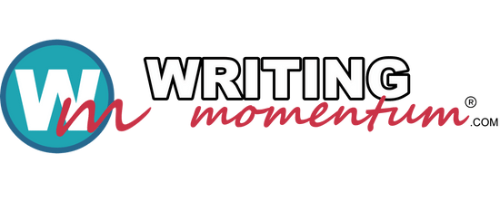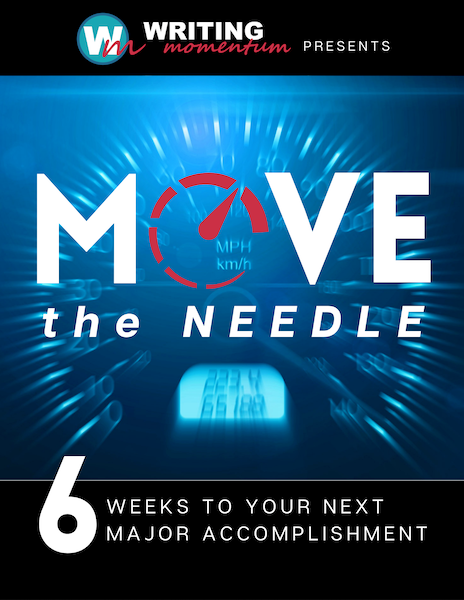Episode 107
Avoid These 3 Writing Mistakes in Non-Profit Communications - Part 1
After 30 years of working with nonprofits, hosts Gena and Chris discuss three common mistakes that writers often make when writing for non-profit organizations. These include the excessive focus on asking for help without celebrating the wins, constantly changing branding messages, and overuse of organization-specific jargon. Insights are also shared on how to execute effective communication strategies for non-profit organizations. This video is beneficial for anyone aiming to optimize their written communication for non-profit fundraising and awareness campaigns.
00:00 Introduction to Non-Profit Writing Mistakes
02:28 Mistake 1: Overemphasis on the Ask
06:14 Mistake 2: Inconsistent Branding Message
09:45 Mistake 3: Overuse of Jargon
12:08 Recap and Preview of Next Episode
13:29 Conclusion and Sign Off
LINKS:
- Liz Wilcox's Email Marketing Membership at http://wmdeal.com/liz
- Get your FREE Move the Needle goal-setting for authors ebook at https://www.writingmomentum.com
- Write with us! Join Chris, Gena, and Rene each Wednesday at noon Central and let's get our writing DONE! https://www.writingmoments.com
Transcript
What are three big mistakes writers make when writing for non profits?
Speaker:Hey, we can help with that.
Speaker:Hey, Gena.
Speaker:Hey, Chris.
Speaker:What are three mistakes that people can make when writing for non profits?
Speaker:Wow, that's a mouthful.
Speaker:I know, we're gonna talk about that today.
Speaker:So Gena and I have written for non profits for years.
Speaker:Decades.
Speaker:Yeah, literally decades.
Speaker:It makes me feel very old when you say that.
Speaker:I don't know if I want to use the word decades when it comes to things I do.
Speaker:But yes, we've been writing for non profits for decades we've written for
Speaker:speakers and pastors and ministers and non profits that have to do
Speaker:with ministry, non profits that have to do with like helping people.
Speaker:Humanitarian, international, all across the board and as we have done so we have
Speaker:been writers ourselves for these different organizations and we have worked with
Speaker:writers For all of these organizations and we have found that there are some general
Speaker:mistakes that writers make when they're writing for nonprofits, and we thought
Speaker:we'd just share three of those today.
Speaker:And I would say that these are mistakes that not only the writers
Speaker:make but the editors make as well.
Speaker:You can sometimes find that even if you write with the things in
Speaker:mind that we're talking about.
Speaker:Sometimes you'll come across editors that will want to edit these things out because
Speaker:they are going toward these mistakes they're doing these things that they
Speaker:haven't necessarily studied some of the things we're going to talk about today.
Speaker:And I do want to point out though that these are things that we've learned
Speaker:over the years that we have been taught from mentors who are mentoring
Speaker:us in the nonprofit space and things that we have learned that just work
Speaker:and that we want to keep in mind.
Speaker:And once you make the shift here for the non profit, you will quickly
Speaker:realize it when you are writing it.
Speaker:You will quickly be able to see what we're talking about.
Speaker:What's interesting about some of these items too is that they really
Speaker:apply to more than just non profits.
Speaker:Some of these are just general marketing or writing techniques and
Speaker:strategies
Speaker:strategies to consider and so even if you don't write for nonprofits I think you'll
Speaker:find this actually quite insightful.
Speaker:Yeah and I think you'll also see that when you are someone who is being written
Speaker:to you'll be able to say yeah that's true I don't want that I want this.
Speaker:Let's get started.
Speaker:The first mistake that we find that people make, that writers make, is
Speaker:constantly focusing on the ask and never giving the donor, the reader,
Speaker:the chance to celebrate the win.
Speaker:So I think you've got to break that down for us.
Speaker:I've got to break that down a little bit.
Speaker:What does that mean?
Speaker:So when we're talking about the ask, if you're a non profit who is raising
Speaker:money for some type of an awareness in your area and you're needing money,
Speaker:we're going to talk locally, say there's something in your local area
Speaker:that you want to bring awareness to.
Speaker:And you have this nonprofit idea and you're wanting to raise some money
Speaker:so that you can expand your reach.
Speaker:If you are constantly focused on give us money, your people, your
Speaker:readers will begin to tune out.
Speaker:Where if you can say give us money, and oh look guys, we've got this much money,
Speaker:look at what we're going to be able to do.
Speaker:People get excited.
Speaker:People want to be a part of something successful and they
Speaker:want to feel a part of that.
Speaker:I think that's the key.
Speaker:People want to be a part of something successful.
Speaker:And it, you're saying money.
Speaker:It doesn't even necessarily have to be money, right?
Speaker:It could be that if you're a local non profit and you're
Speaker:just asking people to come help.
Speaker:We need volunteers.
Speaker:Please come help.
Speaker:If that's the message people hear all the time, but there's never the celebration
Speaker:of what their help is doing, then people become very fatigued with that.
Speaker:They begin to feel like, ah, they're just asking for help again.
Speaker:They just want more help.
Speaker:Or, I helped last time and I keep helping and I keep trying to
Speaker:make a difference, but it doesn't seem like it's doing anything.
Speaker:You know what?
Speaker:I'm going to stay home.
Speaker:Yeah, so how might you celebrate a win in a letter or another form of media?
Speaker:I think you have to work in not only again, ask what you need to ask.
Speaker:And we'll talk about that a little bit later, but ask what you need to ask.
Speaker:But then maybe if you're looking for volunteers to help with something,
Speaker:maybe you spotlight a volunteer.
Speaker:Maybe you take time to spotlight a volunteer or maybe you say, just
Speaker:a simple, thank you guys so much.
Speaker:We're so thankful that this many people came out to help us or we've raised this
Speaker:much money and we're going to be able to do XYZ because of the money that you gave.
Speaker:Let people celebrate that win.
Speaker:Rather than just constantly pounding them with this is what we need.
Speaker:So you're not necessarily saying it's one or the other you could include both in
Speaker:the same letter or on the same web page or on the same form of communication,
Speaker:even if it's social media, you can have a couple posts, one that celebrates
Speaker:the win and one that's asking for help.
Speaker:Absolutely, and you should.
Speaker:You've got to make your ask because that's what you need to do, whatever
Speaker:it is that you're wanting to do.
Speaker:But you want to also work in the win.
Speaker:And I think there's a way you, I will say you do want to work in the win without
Speaker:making it feel like a manipulative thing.
Speaker:We raised this much money, now give us 1, 000 more.
Speaker:You don't want it to feel manipulative, but you want to be more and that's where
Speaker:I would probably lean towards in, in one where I was highlighting the win.
Speaker:I would highlight the win and then do a soft sell for the ask in that one,
Speaker:not just a, we've done this, now let's do this, give me some more money.
Speaker:But I would do a, let's celebrate this.
Speaker:Look at what your donations are doing.
Speaker:Isn't that fantastic, imagine what we could do with this much more.
Speaker:Yeah, that's good.
Speaker:That's good.
Speaker:All right.
Speaker:So another mistake that writers make when they're writing for nonprofits
Speaker:is that they'll often switch the branding message midstream.
Speaker:Here's what I mean.
Speaker:If you ever heard a really good motto or slogan or a tagline that
Speaker:you're like, wow, that's great.
Speaker:And then a lot of times non profits, they hear that slogan so much internally
Speaker:in their organization, they think that it's tired and it's used and
Speaker:they get rid of it in less than a year and they go on to something else.
Speaker:And they do that because they're thinking everyone's tired of
Speaker:that, everyone's heard that.
Speaker:But the truth is, if you've heard your slogan a thousand times, your listeners
Speaker:have probably, or your readers have probably only heard it four or five times.
Speaker:Like they haven't really associated with you yet.
Speaker:And so as writers, we need to try and keep bringing those slogans, those
Speaker:taglines, those phrases back and keep those associated with the brand message.
Speaker:It's really about branding, right?
Speaker:And I think it's funny that sometimes non profits have a hard time with
Speaker:this because if you look at businesses that are for profit, they don't have
Speaker:any trouble with this at all, right?
Speaker:If you say, have it your way, you know instantly that we're talking about what?
Speaker:Burger King.
Speaker:Burger King, right?
Speaker:It's been that way for years and sometimes they'll fade out with it for a little
Speaker:bit and then they'll come back with it or, I'm lovin it is clearly McDonald's.
Speaker:They've been using that for years now.
Speaker:They could have easily rolled it out and a few months later come
Speaker:out with a new one because they've got very deep pockets, right?
Speaker:And they've got all these big marketing crews that can do that, but instead they
Speaker:keep hammering it home again and again to where you associate that Phrase,
Speaker:Slogan, Tagline with the brand so much so that sometimes you'll see for profit
Speaker:businesses that'll have the name of the business, the logo of the business, and
Speaker:then underneath the logo, the tagline will be up on the building with the business
Speaker:because it's so associated with who they are that it's right there with it.
Speaker:So be very careful about retiring taglines that may seem tired and make
Speaker:sure they aren't just tired to you.
Speaker:They may be good for everyone to still see.
Speaker:And good for years.
Speaker:I love that you brought out the profit businesses, because they do, they keep
Speaker:taglines, slogans, logos for years.
Speaker:They don't just keep churning them out.
Speaker:Because, and here's the thing, is that when, like Chris said, somebody
Speaker:could hear something a thousand times, and what we're talking about
Speaker:that, is it probably appears on every snail mail letter that you send out.
Speaker:It appears on every email that you send out.
Speaker:It appears on all your social media that you send out.
Speaker:But imagine even with social media, how many of us see every post
Speaker:that an organization sends out?
Speaker:Statistically, you see maybe 11 percent if you're active.
Speaker:11%.
Speaker:So imagine that.
Speaker:So like Chris said, if an organization has put a slogan or a motto out a thousand
Speaker:times, then 11 percent of that is how many times that person may have even seen it.
Speaker:But how many times did they actually know that they saw it?
Speaker:That's much less, so just like Chris said, be very careful before
Speaker:you retire, that kind of thing.
Speaker:You want the brand recognition, and as writers, you can help
Speaker:bring that to the organization.
Speaker:Okay, so the third one that we've come up with today is that people, and we see
Speaker:this in non profits all the time, they get so connected to a phrase or language
Speaker:that they use to describe their message that they forget that people outside may
Speaker:never know what you're talking about.
Speaker:So there's a jargon.
Speaker:Now, we're not talking about slogans and logos and taglines and things like that.
Speaker:We're talking about if you have a special name for your donors, or you
Speaker:say you're an active, you're a how about like you're a platinum level blah
Speaker:blah blah, the person on the other side of that email or social media post or
Speaker:whatever may not know what that means.
Speaker:They don't know what that means.
Speaker:And so you have to, especially people who are new to your message.
Speaker:I'll see this sometimes where people are writing a welcome sequence
Speaker:for people who are just coming on board to their organization.
Speaker:And they'll want to hit them with all this jargon, all this very specific language
Speaker:that you think if you're someone who's new to this organization, they're not
Speaker:going to know what you're talking about.
Speaker:You've got to be able to break that down, which is what our job is as writers.
Speaker:Yeah.
Speaker:It's funny.
Speaker:I can give a personal example of this because when we were coming up with
Speaker:the branding for Writing Momentum.
Speaker:One of the things that we thought would be cool is to call the people
Speaker:who were members of Writing Momentum, and in doing this with us, we said,
Speaker:hey, let's call them accelerators.
Speaker:That's a really cool thing, right?
Speaker:Because like you accelerate, you're gaining momentum.
Speaker:We thought that's cool.
Speaker:We'll call them accelerators.
Speaker:And so we did that for a while until we realized no one
Speaker:knew what that meant, right?
Speaker:And a lot of people couldn't spell it.
Speaker:Accelerator is a weird word.
Speaker:Is it E R, O R at the end?
Speaker:I don't know.
Speaker:And so we realized that by using that special language, even though
Speaker:we thought it was cool, it had completely lost its meaning.
Speaker:. And so we ended up getting rid of it.
Speaker:We said we're not gonna do that.
Speaker:We're just gonna say, Hey, Gena!
Speaker:We're gonna keep it simple.
Speaker:Just use their name.
Speaker:And people tend to associate that with us now.
Speaker:Because we're just, yeah.
Speaker:Keeping it simple.
Speaker:Keeping it real.
Speaker:So going back to the three mistakes that nonprofits, we see these specifically with
Speaker:nonprofits or not specifically, I would say, especially with nonprofits, that we
Speaker:see this with, especially with nonprofits.
Speaker:One, it's focusing so much on the ask that you never share the win.
Speaker:Two is switching the branding message, changing that tagline, changing that
Speaker:slogan, changing that phrase or even logo, just constantly, just getting
Speaker:so tired of it internally that you forget that the people outside
Speaker:don't even know what it is yet.
Speaker:And then three, using jargon, using personal, organizational jargon
Speaker:to describe something without ever breaking it down for your reader.
Speaker:That's good stuff.
Speaker:I know.
Speaker:So it hopefully even if you're not writing for a non profit you will still find these
Speaker:very helpful in your writing And I got a secret to tell you we got more these!
Speaker:These are so good we were like, hey, let's do two episodes on this.
Speaker:So if you found this helpful we hope that you will rate and review
Speaker:subscribe share it with someone else who you think might benefit from
Speaker:knowing some of these common mistakes.
Speaker:Then tune in next week because next Wednesday we're going to have another list
Speaker:of three or maybe four more mistakes that writers make when writing for non profits.
Speaker:Until then don't forget, together.
Speaker:We have writing momentum.
Speaker:Bye bye.





